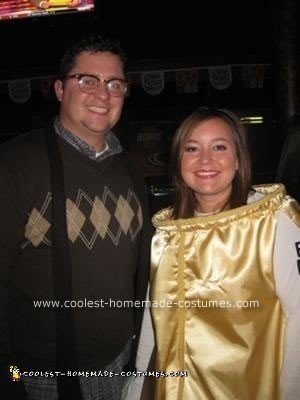

In the right context it is no more offensive than saying ‘Hello, how are you my friend?’.Īnd then we have ‘Lang mae yer lum reek‘, which sounds like it would be announced accompanied by an unpleasant smell, but is in fact a pleasant Scottish sentiment, originally translated from ‘long may your chimney smoke’ and now meaning something akin to I wish you a long and healthy life. ‘ Awright ya wee bawbag?’ (a bawbag being a scrotum) is a greeting only really used between close pals. It can also be very confusing in Scotland, often something that sounds like an insult can actually be a term of endearment. If aforementioned hen was a particularly lovely looking girl, she might be referred to as a bonnie lass (pretty or beautiful).Īnd if you have found yourself out for an evening in any local Scottish establishment, don’t be surprised to find the gorgeous people surrounding yourself described as braw (men) and tidy (women). Not to be confused with the feathery fowl, but instead referring to a female, often a younger lady, used as a Scottish term of endearment, much like honey or sweetheart might be used further South. Hen– being perhaps the most widely recognised. I mean, I won’t deny they are passionate folk, but it goes both ways, as well as some of the angriest words spoken, since being in Scotland I’ve definitely heard some of the most affectionate too. Many of the visitors to Scotland are confused by the unique Scottish slang words, and to make things even more confusing, each region have their very own variations of common words, for example in Edinburgh they talk about ‘ bairns’, but in Glasgow they speak of ‘weans’, both meaning small children.įor some reason there seems to be a lot of assumption about Scots being more aggressive than their southern neighbours. Some words are easy to understand, being more to do with pronunciation than anything else, but there are some words that I never would have guessed the meaning of. Around 60,ooo people still speak Gaelic, but only a seldom few words have made it into daily Scottish usage. Many of the words most commonly used in modern Scotland are borrowed from Scots, a 600-year-old language with Germanic origins. How many Scotticisms do you think you know?!

Scotticism is my new favourite word! It means a phrase or a word which is characteristic of dialects of the Scots language. So I’ve made it my mission to become acquainted with the local pattern, and whether you are travelling to Scotland or just feeling curious about the mysterious Scottish lilt, some of these words and phrases are sure to bring a smile to your face.

You could be forgiven for thinking that Scottish slang is an entirely different language to the rest of the UK between the broad accents and regional variations in which they speak, as well as words carried over from Gaelic and languages of old, it’s almost as if they don’t want to be understood at all in some areas!


 0 kommentar(er)
0 kommentar(er)
